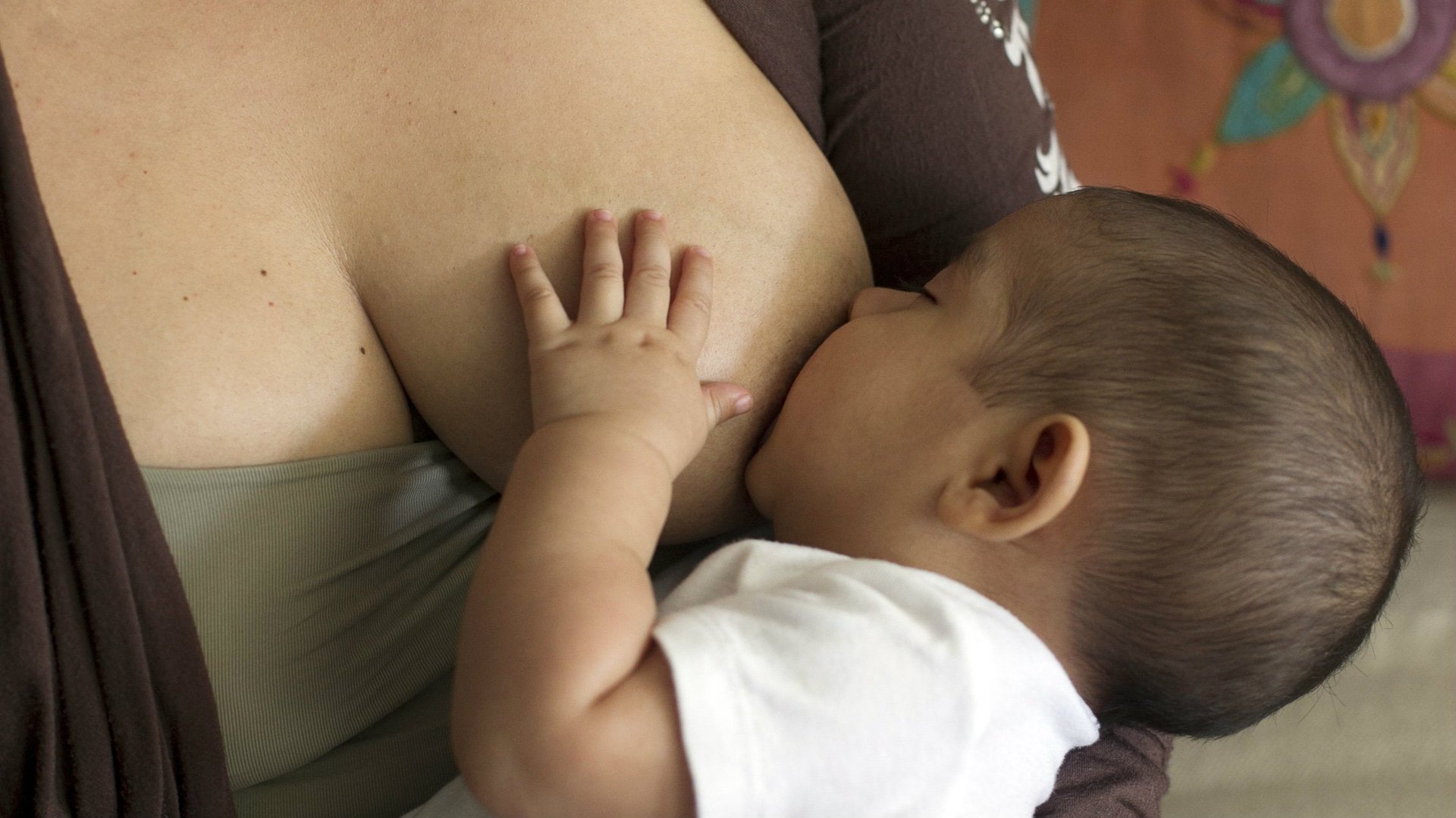Science just gave mothers another reason to let go of their breastfeeding guilt
The benefits of breastfeeding are plentiful. Breast milk builds up an infant’s immune system, and may help to prevent allergies. For mothers, breastfeeding lowers the risk of developing breast cancer later in life. The American Academy of Pediatrics recommends that babies be exclusively breastfed for the first six months of life, if possible.


The benefits of breastfeeding are plentiful. Breast milk builds up an infant’s immune system, and may help to prevent allergies. For mothers, breastfeeding lowers the risk of developing breast cancer later in life. The American Academy of Pediatrics recommends that babies be exclusively breastfed for the first six months of life, if possible.
What is not clear from research is whether breastfeeding helps make babies smarter, or influences whether they develop behavioral problems.
A new study published in Pediatrics shows that mostly, it does not: Children who are breastfed for at least six months show no statistically significant cognitive impact from the breastfeeding. And while they are less hyperactive at age three, that effect fades by age five.
“We weren’t able to find a direct causal link between breastfeeding and children’s cognitive outcomes,” Lisa Christine Girard, one of the authors, told NPR.
The study looked at about 7,500 children in Ireland. Information was collected from parent and teacher reports and standardized assessments regarding children’s problem behaviors, expressive vocabulary, and cognitive abilities when kids were age three, and again when they were five years old. Mothers provided breastfeeding information.
Part of what makes studying the impact of breastfeeding so tricky is that women who chose to breastfeed often share other characteristics, the authors note in the study: They often have higher levels of education and they engage in fewer risky behaviors during pregnancy like smoking. That makes it harder to differentiate what is the benefit of breast milk, or the skin-to-skin contact of nursing versus what is driven by IQ, education, and socioeconomic status.
“The main challenge facing researchers who seek to examine the impact of breastfeeding on child outcomes is an inability to randomly assign individual mothers to breastfeed or not,” wrote Lydia Furhman in an accompanying editorial in Pediatrics.
That makes broad-based population studies like this one more attractive. In the study, breastfed children scored slightly higher on cognitive and non-cognitive functions. But when the researchers applied a statistical method to control for other socioeconomic influences, only one of 13 measures—hyperactivity—remained statistically significant. Children who were breastfed for at least six months were less hyperactive at three years, but that effect wore off by the time they were five.
In other words, once the researchers accounted for things like a mother’s education or her income, the stand-alone effects of breastfeeding faded.
Even if the latest study does not show a cognitive impact, other studies suggest there may be a small IQ boost, and there are plenty of other health benefits of breastfeeding for babies, such as the ability to better fight infection. Furhman noted that at least four reputable studies have shown breastfeeding to improve performance on IQ testing by 1.76 points, suggesting a “small but durable impact of breastfeeding on intelligence.”
For the affluent and well-educated, such findings have long fueled mommy wars (and the accompanying maternal guilt) over if, when, and for how long mothers should breastfeed. But the real question goes to the disadvantaged, and what policies can help inform both their decision to breastfeed and their ability to follow through. There is ample evidence, including from this most recent study, showing that younger, unmarried, poor, and ethnic minorities are less likely to breastfeed. As Furhman notes, the challenge is how to give mothers ”the chance to choose to breastfeed and to succeed.”